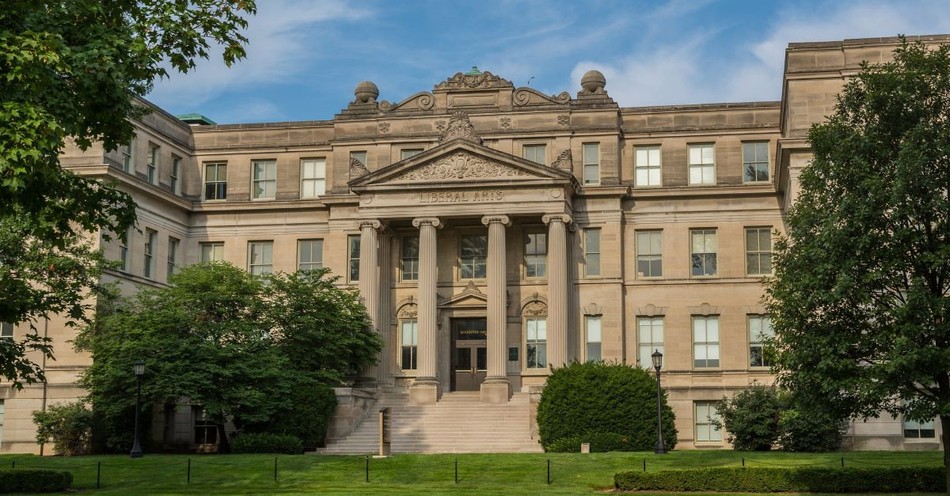Back in February, federal judge Stephanie M. Rose ruled that the University of Iowa could not strip recognition from Business Leaders in Christ for requiring leaders to follow traditional Christian teaching on sexual morality.
Rose, an appointee of President Obama, didn’t find a problem with the university’s “Human Rights Policy,” which the university claimed the Christian group violated. But she did think it a problem that the university applied the policy inconsistently, in a way that violated students’ free-speech rights.
Did the University of Iowa learn their lesson? Ummm… no. Last week, university officials found themselves back in Rose’s courtroom. Despite the very clear ruling from February, university officials de-registered InterVarsity Christian Fellowship in June, for the same reason.
I’m not sure what the university expected, but in the last seven months Judge Rose had not changed her opinion about what the Constitution requires.
In fact, this time she let them have it. Since the February ruling, she wrote in her opinion, university officials “proceeded to broaden enforcement of the Human Rights Policy in the name of uniformity applying extra scrutiny to religious groups in the process — while at the same time continuing to allow some groups to operate in violation of the policy and formalizing an exemption for fraternities and sororities. The court does not know how a reasonable person could have concluded this was acceptable.”
Back in her February ruling, Rose pointed out how “the Chinese Students and Scholars Association limits membership to Chinese students, and the Iowa Hawkapellas, an a capella group, only accepts women.” Yet neither of these groups were de-recognized for violating the Human Rights Policy.
Nor were fraternities and sororities or LGBTQ student groups required to open their leadership policies. Just about the only groups the policy applied to, according to university officials, were Christian groups that uphold traditional Christian teaching about sexuality.
Rose made her opinion about that quite clear: “The Constitution does not tolerate the way defendants chose to enforce the human rights policy.” She correctly identified the double standard clearly at work, which can be summed up as “some freedom of speech and association is freer than others.”
Frustrated with their stubbornness and determined to not have them re-visit her court for the same reason, Rose decided to hit officials where it really hurts: their wallets.
In her February ruling, Rose said that university officials were not personally liable for any potential damages awarded to the group Business Leaders in Christ. But that will not be true regarding any damages awarded to InterVarsity, since officials ignored her February ruling.
Becket’s Daniel Blomberg, who represented InterVarsity, said it was “too bad it took twice for the university to learn its lesson.” He added that “University officials nationwide should now take note that religious discrimination will hit them in the pocketbook.”
Even if InterVarsity never collects a nickel from these hostile university officials, the ruling is still a big win for religious freedom on college campuses. And it’s another chapter in what’s becoming quite a long story of why believers ought to actively defend their religious freedom. InterVarsity’s win is a win for every campus group in America.
To ensure religious freedom has a future, more will be forced to take action like InterVarsity did. And, we’ll all have to learn to make the case for religious freedom and why it matters.
This month the Colson Center is offering an outstanding new book by Becket attorney Luke Goodrich entitled, “Free to Believe.” It lays out exactly what we all can say and do to make sure our religious freedoms have a future. Come to BreakPoint.org/book to get your copy of “Free to Believe.”
BreakPoint is a program of the Colson Center for Christian Worldview. BreakPoint commentaries offer incisive content people can't find anywhere else; content that cuts through the fog of relativism and the news cycle with truth and compassion. Founded by Chuck Colson (1931 – 2012) in 1991 as a daily radio broadcast, BreakPoint provides a Christian perspective on today's news and trends. Today, you can get it in written and a variety of audio formats: on the web, the radio, or your favorite podcast app on the go.
John Stonestreet is President of the Colson Center for Christian Worldview, and radio host of BreakPoint, a daily national radio program providing thought-provoking commentaries on current events and life issues from a biblical worldview. John holds degrees from Trinity Evangelical Divinity School (IL) and Bryan College (TN), and is the co-author of Making Sense of Your World: A Biblical Worldview.
Publication date: October 7, 2019
Photo courtesy: Tony Webster/Creative Commons, cropped and resized to 1200x627




